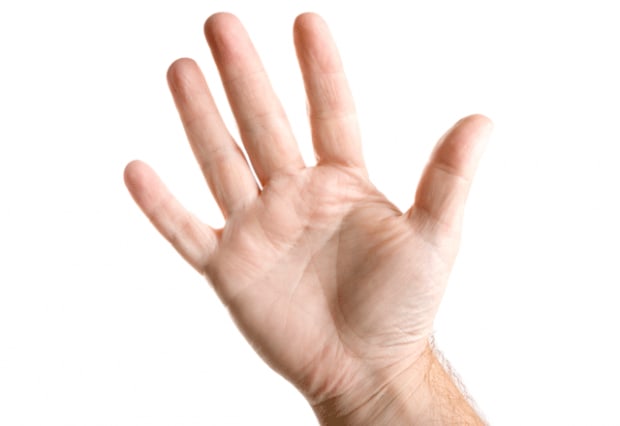 Recently, I shared my thoughts on the Charleston, South Carolina shooting, specifically the forgiveness granted by the families of the victims. I posited that, while admirable, such automatic absolution does not reflect the Jewish ethos, in which forgiveness must be earned through regret, an admission of guilt and a resolution to make things right. None of these things have yet been offered by Dylann Roof, the Charleston shooter.
Recently, I shared my thoughts on the Charleston, South Carolina shooting, specifically the forgiveness granted by the families of the victims. I posited that, while admirable, such automatic absolution does not reflect the Jewish ethos, in which forgiveness must be earned through regret, an admission of guilt and a resolution to make things right. None of these things have yet been offered by Dylann Roof, the Charleston shooter.
This article was well-received and there was some spirited discussion in the comments, via email, and elsewhere. Some people questioned my premise based on everything from bedtime prayers to tales of Hasidic rebbeim that extolled the virtues of forgiveness. I maintained that such blanket expressions of absolution are lifnim m’shuras hadin — beyond the letter of the law — and probably not legally effective. After all, if you wronged someone, you’re still obligated to approach them and to request forgiveness before Rosh Hashana. You can’t just say, “He already forgave me in his bedtime prayers!”
But that’s not what inspired me to write a follow-up.
I answer a lot of questions for the OU. One question I received last week found me taking a contrary position. The correspondent asked me to recommend Psalms he could recite to ask God to destroy his enemies.
He provided some context. The writer was a high school student who had helped a classmate. He then asked the classmate for some help in return, but he was refused. While perhaps unwilling to take matters into his own hands, he was not averse to a little Divine retribution.
Sympathetic though I was to his dilemma, I declined to offer the young man Psalms designed to encourage God to smite his rivals. That’s just not our way.
Yes, David surely composed such things, but we must put them in context. David’s enemies framed him for treason and were trying to murder him. If you ever find yourself in such a situation, I’d be happy to recommend appropriate Psalms. Most of us, however, do not have such problems. Dealing with the problems we do have requires a commensurate level of response.
What the person who wrote the letter was asking to do is specifically prohibited by the Torah. As I mentioned in the previous article, Leviticus 19:18 forbids both taking revenge and bearing a grudge. Rashi defines these terms based on the Talmud in Yoma (23a). Taking revenge is refusing to perform a favor for someone who refused to do one for you. Bearing a grudge is performing the favor but pointing out to the other person how much better a person you are. Certainly, we don’t advocate praying for another’s downfall over failure to perform a favor.
Now, what if we’re not talking about failure to perform a favor? What if we’re talking about someone who is actively causing distress? Other tactics might then be called for, but there’s still a whole spectrum of responses available. I am reminded of the story of Rabbi Meir, as related in tractate Brachos (10a). He was being harassed by some neighborhood toughs and he prayed that they should perish. His wife, Bruriah, pointed out Psalms 104:35 that states that sins — not the sinners — should perish from the Earth. Rather, she said, Rabbi Meir should pray that the hooligans repent. He did so pray, and he was answered — a win-win!
Praying that our antagonists repent is just one way of asking for God’s help. There are others. For example, at the conclusion of Shemoneh Esrei, there is a series of personal prayers. Among these, we ask that God help us to be silent to those who curse us, and that He foil the plans of those who plot against us. We see that there are quite a number of ways we can turn to God for help before we reach the point of, “I beseech Thee, smite mine enemies.”
The Torah does not require that we overlook every offense; in fact, every situation is different. We should try to get over ourselves and ignore slights. We must not bear a grudge against others for failure to do us a favor. But what if you were taken in by an unscrupulous salesman? No one says you have to “turn the other cheek.” The appropriate course of action is to take him to beis din and get your money back. Other criminal offenses should likewise be treated with an appropriate degree of severity. This must all be done in the interest of justice, however – never in the interest of vengeance.
King Saul famously allowed King Agag of Amalek to live instead of executing him as God had commanded. This misplaced act of mercy led to the birth of Haman and the near-destruction of the Jewish people. In a subsequent incident, Saul ordered the destruction of the city of Nov, because he suspected they had aided David against him. (As noted above, David was never really guilty of treason against Saul, let alone the inhabitants of Nov.) Chazal tell us that those who use misplaced kindness (as Saul did with Agag) will ultimately use misplaced cruelty (as he did with Nov).
The world’s not black-and-white. It’s a spectrum with an infinite number of colors. Just because I’m disinclined to pardon Dylann Roof’s killing of nine innocents studying Bible in a church, that doesn’t mean I advocate praying for the demise of obnoxious neighbors or uncooperative classmates. In The Mikado, Gilbert and Sullivan said to “let the punishment fit the crime.” Similarly, our reaction to insults and injuries must be appropriate based on the intended malice of the perpetrator and the actual damage inflicted. When there’s no real harm and/or no malicious intent, we must do our best to overcome our egos and to restore peace. And when confronted with actual evil, our job should be to eradicate it, not to appease it.
Being kind when uncalled for can be as big a mistake as being cruel when uncalled for. Our job is to learn when to use each tool.
To read Rabbi Jack Abramowitz’s earlier article on the subject, click here.
The words of this author reflect his/her own opinions and do not necessarily represent the official position of the Orthodox Union.

